As online retail continues to grab market share, more and more consumers are turning to the internet for everyday staples, holiday gifts, and even groceries, but how do you keep your spending under control?
2. Short-term Goals
Short-term goals are achieved in under a year. To determine the amount you will need to save for a good or service, look at what the cost is now – it is unlikely that the price will be that much different seven or eight months down the road. Once you know the total amount you need, determining the amount you need to save each month is easy – just subtract any amount you have already saved from the total cost and divide by the months until the desired achievement date.
Example 1
You would like to buy a new sofa nine months from now. You visit a few furniture stores and discover that the model you are interested in cost about $900. You have not saved anything yet. Therefore, you would want to save ($900 – $0)/9 = $100 a month.
Example 2
You would like to establish an emergency savings account within eight months. Unlike with the sofa, you can’t go to the store to determine how much you need. Instead, you want to look at what your expenses are – most experts recommend setting aside three to six months worth of essential livings expenses. You calculate your essential expenses at $1,000 a month. You would like to have five months worth of expenses in your emergency savings account and already have $1,000 in there. Therefore, you would want to save ($1,000 x 5 – $1,000)/8 = $500 a month.
3. Mid-term Goals
Mid-term goals are achieved within one to five years. To determine the total cost and amount you need to save per month, you can use the method just described for short-term goals or use the method that is described in detail in the long-term goals section. This method takes into consideration the fact that the cost of most things rises over time due to inflation and that your savings will grow beyond your contributions if you earn a return on your investments. The math for the first method is much easier, but the second gives you more accurate numbers. You don’t necessarily need to go the extra mile to consider inflation and return for goals of smaller amounts that you plan on achieving in a year or two, but you may want to do it for high-cost goals with a longer timeframe.
Example 1
You would like to take your family to Disney World in year. Currently, the cost of the vacation is $2,000. You have not saved anything for the trip yet. Using the short-term goal method, you calculate that you need to save ($2,000-$0)/12 = $167 a month. If you use the long-term goal method (assuming an inflation rate of 3% and an interest rate of 1.5% on your savings account), you would need a total of $2,060 and have to save $170 a month. As you can see, because the timeframe is short and the amount saved is small, using the first method gives you fairly accurate numbers without needing to whip out a financial calculator to do the more advanced math of the second.
Example 2
You owe $11,320 in credit card debt ($5,000 on a card with a 12% APR, $3,320 on a card with a 15% APR, and $3,000 on a card with a 19% APR). You would like to be debt free in four years. To figure out how much you should pay, you can’t just take $11,320 and divide it by 48 months – you need take into consideration the fact that you are charged interest each month on your outstanding balance. This can be done with a debt repayment calculator. One is available at www.balancepro.org/resources/calculators/credit-card-payoff-calculator/. To be debt free in four years, you will need to pay $132 on the first card, $93 on the second, and $90 on the third. (*Note: Make sure your monthly goal amount covers at least the minimum required payment.)
4. Long-term Goals
Long-term goals are achieved in more than five years. When you are figuring out the total amount you need to save for a long-term goal, it is important to consider the effect of inflation, which, as mentioned previously, is the general increase in the price of goods and services over time. Ever hear someone lament about how a loaf of bread, gallon of gas, movie theater ticket, etc., only cost a quarter back in the day? Well, inflation is one of the reasons those things cost multiple quarters now.
Start by researching what the cost of the goal is now. Next, figure out the rate of inflation you will use. (You can do research on what the inflation rate has been historically for your goal, but if you can’t find anything specific, you can use the general inflation rate (typically measured with the Consumer Price Index), which in recent years has hovered around 3%. Don’t worry too much about coming up with a precise inflation rate – even economists sometimes disagree on what to use.)
Keep in mind that the cost of your goal is the after-tax amount that you need. In many cases, the taxes that you have to pay on your savings may be minimal or nonexistent. However, if you are saving the money in a tax-deferred account, like a 401(k), or expect significant earnings from a taxable investment, then it is a good idea to figure out the pre-tax amount and use that figure when calculating how much you will need to save each month. Doing this will ensure that you have enough money for both your goal and taxes. If you do not know what your tax liability will be, you may want to seek the help of a financial planner or accountant.
Once you know the total amount you need to save, you can figure out how much you should set aside each month. As discussed previously, it is a good idea to factor in the return that you expect to earn on your investments. For example, if you put money in a certificate of deposit (CD), you will be paid interest. If you invest your savings in stocks, the value of the stocks will likely increase over time, and you may also receive dividends. (Investment options are discussed in more detail later.) Some investments may come with a fixed rate of return that you know ahead of time. If what you plan to invest in doesn’t, you will have to estimate what you expect the return to be. One way to do this is to look at what the return has been in the past – past performance is not always a very good predictor of future performance, but unless you have a crystal ball, you may have no other choice.
Example 1
You plan on buying a house in seven years. You would like to have a down payment of 10%. You look at home listings on-line and see that the homes you are interested in cost around $200,000. You have already saved $5,000. A real estate agent tells you that home values in your area typically increase about 4% a year, and you plan to put your savings in a mutual fund with a historical return of 5%. The current value of the desired down payment amount is $200,000 x .1 = $20,000. You use the “What will my investment be worth in the future?” calculator to determine the down payment amount you will need in seven years. You enter today’s date in “Present date”, today’s date plus seven years in “Future date”, $20,000 in “Present value”, 4% in “Rate of return”, and leave the “Compounding period” at annual. You get an answer of $26,318.64. You then use the “How much should I save each month?” calculator to determine how much you should save each month. You enter $5,000 in “Balance at start date”, 5% in “Rate of Return”, $26,319 in “Savings goal”, and 7 in “Number of years”. You need to save $192 monthly to reach your goal.
Example 2
Your child will be going to college in 10 years. You would like to pay for half of his tuition costs. You look up the current tuition at several schools. The average is $24,000 a year. You plan to put the money in your state’s 529 college savings plan, which in the past has earned an average return of 6%. You have not saved anything yet. Future college tuition can be easily estimated with the “College Cost Projector”. The tuition inflation rate (which is typically much higher than the general inflation rate) is already provided – you just need to fill in whether it is a two- or four-year college, current one-year tuition costs, and years until matriculation (start of college). (Leave “Adjust tuition after matriculation” at yes.) Entering your information in the calculator, you get a result of $209,616.96 for the total projected tuition costs (assuming an inflation rate of 7%). Thus, the amount you want to save is $209,617 x .5 = $104,809. Using the “How much should I save each month?” calculator, you determine that you need to save $640 a month to reach your goal.
Example 3
You are planning on retiring in 35 years. Other than that, you have no idea where to begin. Determining how much you need to save for retirement is no simple task. In addition to considering inflation and rate of return on your investments, you also need to consider what you expect your expenses to be when you retire, how long you expect to live, how much taxes you will have to pay on withdrawals, and what your Social Security benefits will be (or if you even want to count on receiving Social Security). Your best bet is to use a retirement calculator (a detailed one is available on the AARP’s website) or consult with a financial advisor.
5. How Realistic Is Your Goal Plan?
After you set your goals and determine what amount you need to save each month to reach them, it is a good idea to consider if you can actually save that much each month. If you goal plan tells you to save $1,500 a month but your income is $1,700 a month, you probably can’t save $1,500 a month. To determine how realistic your goal plan is, start by listing your current income and expenses. If there is not enough money in your budget right now to save what you want for your goals, consider if you can make any changes to your income and/or spending. Can you get a part-time job? Cut back on dining out? Get a cheaper cable package? Spend less on clothing?
If you still fall short after making adjustments to your budget, you may have to rethink your goals. Is there a cheaper alternative available? (For example, you can go to a local amusement park instead of Disney World.) Can you extend the timeframe? Are there any goals that are less important that can be dropped? Maybe you would really love to buy a $5,000 garden gnome to put in your front lawn, but having enough money for retirement is a bigger priority.
6. Savings
Once you have a realistic goal plan, you need to determine where your savings will go. There are three main types of investment classes:
- Stocks. A share of stock represents a percentage of ownership in a corporation. In other words, if a company is divided into a million shares and you buy one share, you would own one millionth of that company. You can make money from receiving dividend payments and selling the stock for more than you bought it for. Historically, stocks have provided the greatest return long term. However, there are no guarantees – one day your stock may be worth more than what you paid for it, the next, less.
- Bonds. A bond is a loan to a company or government, with you, the bondholder, as the lender. Organizations issue bonds when they want to raise funds. Generally, you receive the principal, called the par value, at maturity of the bond and interest periodically while you are holding the bond (although some only pay interest at maturity or not at all). Depending on the market, you may purchase a bond below, at, or above its par value. In general, bonds are between stocks and cash equivalents in regard to risk and return.
- Cash equivalents. Cash equivalents are assets that can be readily converted into cash, such as savings and checking accounts, certificates of deposit, money market deposit accounts, and U.S. Treasury bills. They tend to be low-risk, so there is little or no danger that you will lose the money you deposit. As a result, cash equivalents provide a low return.
It is best to keep money for short-term goals in cash equivalents. Because you will be using the money soon, your primary concern is that you not lose any of your principal investment. If you put it in stocks, there is a good chance they could be worth less in six months. However, make sure to keep your savings separate from the checking account you use to pay for your regular expenses. If you are using a savings account, you should be able to have part of your paycheck directly deposited into it or set up a regular automatic transfer from your checking account to your savings account.
For long-term goals, the value of your investment in six months is less of a concern than inflation. The return on cash equivalents is often less than the rate of inflation, meaning if you keep your money there, its value will be essentially decreasing over time. That is why it is a good idea to put a large chunk of the money you are saving for long-term goals in stocks and bonds, which, on average, have a higher return than cash equivalents. There is a risk that the value of your investments will decrease, but the risk is lower the longer your investment period is. Inflation can be a concern for mid-term goals, but since the timeframe is shorter, you may want to be more conservative with your investment choices.
Diversification can help you reduce the risk of losing money when you invest. A well-balanced portfolio has a mixture of stocks, bonds, and cash equivalents. (What the exact percentages should be depends on how far away you are from your goals and your risk tolerance.) It is also a good idea to diversify within each type of investment class. For example, you can purchase stocks from manufacturing companies, technology-oriented companies, and financial services companies. A simple way to get diversity is to purchase shares in a mutual fund. In a mutual fund, money from several investors is pooled to buy different stocks, bonds, and/or cash equivalents.
Take advantage of tax-deferred accounts when they are available. For example, for retirement, use a 401(k) or 403(b) if your employer offers it, or you can set up a traditional IRA or Roth IRA on your own. If you are saving for your child’s higher education, you can use a Coverdell Education Savings Account or 529 plan. 401(k)s, 403(b)s, and traditional IRAs allow you to make tax-free contributions, while Roth IRAs, Coverdell Education Savings Accounts, and 529 plans allow you to make tax-free withdrawals. All of these accounts allow your earnings to grow tax free.
Be flexible
Your savings should be the first “bill” you pay each month. But what if you simply can’t put the $150 into your Maui extravaganza fund one month because your transmission blew? Resist the urge to panic, and consider it a temporary setback. With a little extra effort, you may be able to make it up over the next couple of months. Or you may be able to alter your plans or achievement date slightly. However, if you find yourself regularly unable to meet your savings goal, there may be deeper issues to contend with. Were you too optimistic with those overtime hours? Couldn’t give up smoking to save the extra $100 per month? Or perhaps the goal really wasn’t for you – you thought a new computer was vital to your happiness, but the prospect of owning it just isn’t giving you the thrill you anticipated. Revisit your goals and budget and make adjustments so that they are more achievable.
By taking the time to set financial goals, you can go from wishing to having.
The blog post above was shared from BALANCE. For more information and similar resources, click here .













